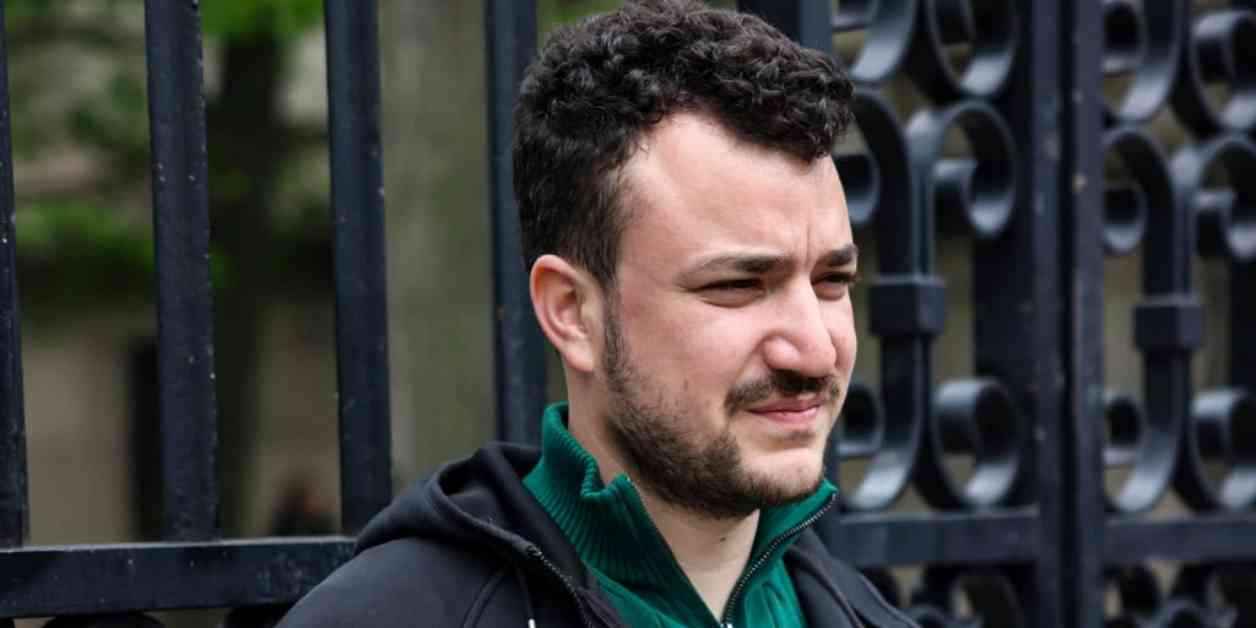In a recent turn of events, the Trump administration faced a pivotal moment as they scrambled to provide evidence of Mahmoud Khalil’s alleged threat to national security, resulting in a controversial attempt to deport the Columbia student protester. Khalil, a graduate student who played a prominent role in demonstrations against the war in Gaza, found himself in the crosshairs of immigration authorities on March 8, culminating in an immigration judge’s demand for evidence justifying his deportation by the following day.
The spotlight then shifted to Secretary of State Marco Rubio, whose Wednesday evening response to the judge’s order shed light on the administration’s motives. In a concise one-and-a-half-page memo, Rubio invoked a lesser-known provision of the Immigration and Nationality Act of 1952 to rationalize Khalil’s expulsion from the U.S., citing concerns over the potential impact of his beliefs on Jewish students’ safety in the country. By emphasizing the delicate balance between lawful expression and national security interests, Rubio’s memo sparked a contentious debate over the boundaries of free speech and the government’s authority to regulate dissent.
As the legal drama unfolded, Khalil’s attorney Baher Azmy wasted no time in countering the administration’s narrative, asserting that the case underscored a larger question of immigrants’ rights to vocalize dissent without fear of persecution. Azmy’s impassioned defense of Khalil’s First Amendment rights resonated with civil liberties advocates and activists alike, highlighting the broader implications of the government’s crackdown on foreign students critical of U.S. foreign policy.
Legal Battle Unfolds
The courtroom showdown between Khalil’s legal team and Assistant Chief Immigration Judge Jamee Comans loomed large, with the pivotal hearing set to determine Khalil’s fate scheduled for the following day. With the stakes higher than ever, both sides prepared to present their arguments in a high-stakes legal battle that could shape the future of immigrant activism in the United States. If Comans ruled in favor of Khalil’s deportation, his legal team stood ready to mount an appeal, setting the stage for a protracted legal battle that could test the limits of executive authority and constitutional protections.
Veteran attorney Marc Van Der Hout’s scathing critique of the Rubio memo underscored the government’s lack of substantial evidence, raising doubts about the validity of the administration’s claims surrounding Khalil’s potential impact on foreign policy. With only a two-page document as the linchpin of the government’s case, Van Der Hout questioned the veracity of Rubio’s assertions, casting doubt on the administration’s motives in targeting Khalil and other foreign students critical of U.S. policies.
Rising Tensions and Political Fallout
Amid the escalating tensions surrounding Khalil’s case, the Department of Homeland Security’s announcement of a task force to monitor the social media activity of immigrants sent shockwaves through immigrant communities and civil rights organizations. The task force’s mandate to scrutinize the online presence of over 1.5 million foreign students studying in the U.S. for signs of anti-Semitism underscored the government’s broader crackdown on dissent and political activism on college campuses.
The federal government’s aggressive stance on combating anti-Semitism and perceived threats to national security has reverberated across universities nationwide, culminating in a wave of visa revocations and heightened scrutiny of foreign students critical of U.S. policies. The administration’s punitive measures against Columbia and other universities involved in last year’s protests against the war in Gaza have raised concerns about academic freedom and the chilling effect on political speech in higher education institutions.
As the legal battle over Khalil’s deportation continues to unfold, the case has emerged as a litmus test for the government’s authority to regulate dissent and immigrant activism in the U.S. With civil liberties advocates and legal scholars closely monitoring the proceedings, the outcome of Khalil’s case could have far-reaching implications for the rights of immigrants to engage in political speech and activism without fear of reprisal. Stay tuned as this high-stakes legal drama plays out in the courtroom, shaping the contours of free speech and civil liberties in the U.S. and beyond.














